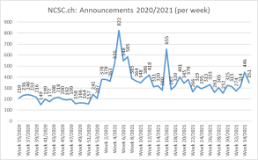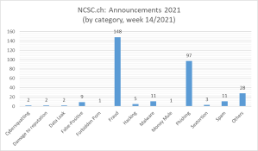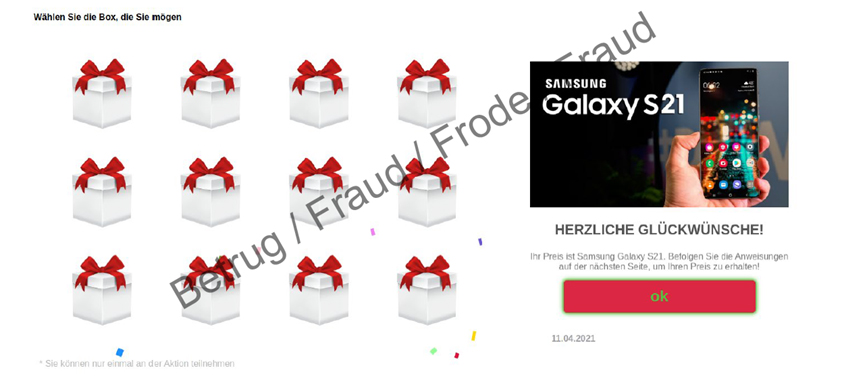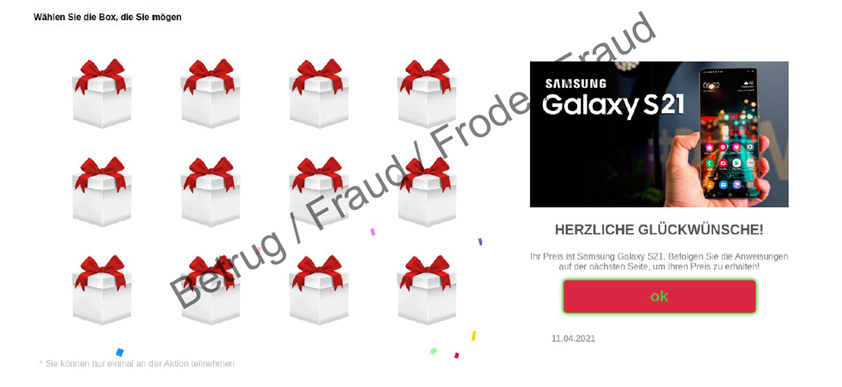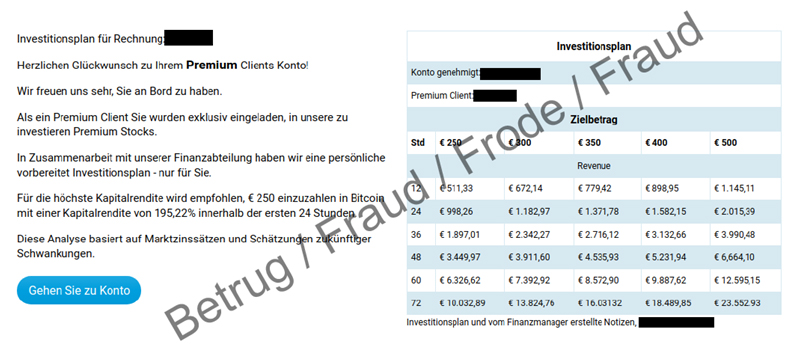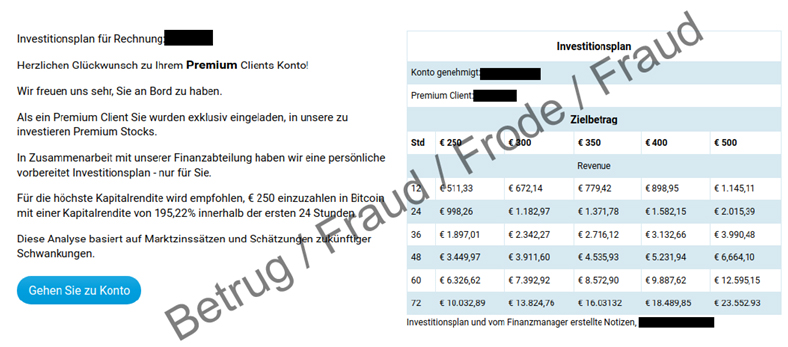13.04.2021 - The NCSC received few reports last week. Most of them concerned fake sextortion. Fraudulent competitions in the name of well-known Swiss companies were also circulating again. In two cases, the bank account number (IBAN) was manipulated in invoices. This was triggered by the compromised email servers of two foreign suppliers, where the invoice was intercepted. In addition, investment fraudsters are becoming increasingly brazen. A promotional email promised earnings of EUR 12,000 for an investment of just EUR 250 – all in 72 hours!
Current statistics
Fraudulent competitions in the name of food retailers and telecom providers
Following a period in which fraudulent competitions were no longer frequently observed in Switzerland, there were again various reports last week. However, the fraudsters have not been innovating in the meantime, as the websites' appearance and the process for the alleged competitions are still the same.
The scammers want to attract as many participants as possible, so the questions are very easy. In order to receive the supposed prize after answering, personal data such as credit card details, name, email address and mobile phone number have to be provided in a second step. Upon sending this information, a subscription for several years is unwittingly taken out. The fee is immediately charged to the credit card.
If you provided your credit card details, contact your credit card provider straight away. You can find more information on subscription scams on the websites of SECO and the Swiss Consumer Protection Foundation:
SECO
Swiss Consumer Protection Foundation (in German)
Manipulated invoices from suppliers
Last week, the NCSC again received a growing number of invoice manipulation reports. This type of fraud refers to an existing email that contains a payment instruction or invoice. The IBAN in the invoice is changed by the attackers and then resent to the company. In order to access this email, attackers must have access to either the sender's or the recipient's email account. In the cases in question, the email server of two Chinese companies that have business relationships with companies in Switzerland was hacked. Such suppliers are extremely popular with attackers, as they have a large number of business partners and the invoice amounts are very high. The NCSC recommends that companies raise awareness of these potential attack methods, especially among employees in finance divisions and key positions.
Brazen investment fraudsters
Large numbers of fraudulent "investment" offers are sent every day. If you pay in money for such an "investment", the fraudsters repeatedly promise that everything is fine and that a lot of money will soon be paid out. In order to stand out in the avalanche of advertisements, the fraudsters seem to be outdoing themselves with unrealistic returns at the moment. A promotional email reported to the NCSC last week promised earnings of EUR 12,000 for an investment of just EUR 250, all in 72 hours! It is obvious that this is a scam.
Be wary of promises of unrealistic returns. In general, it is worth noting that promises of large profits within a short period of time (and without work) should typically be considered "too good to be true".
The FINMA website provides information on authorised financial service providers in Switzerland:
Particular caution is required if the financial service provider is not authorised. Check out the financial service provider using online experience reports.
Last modification 13.04.2021


